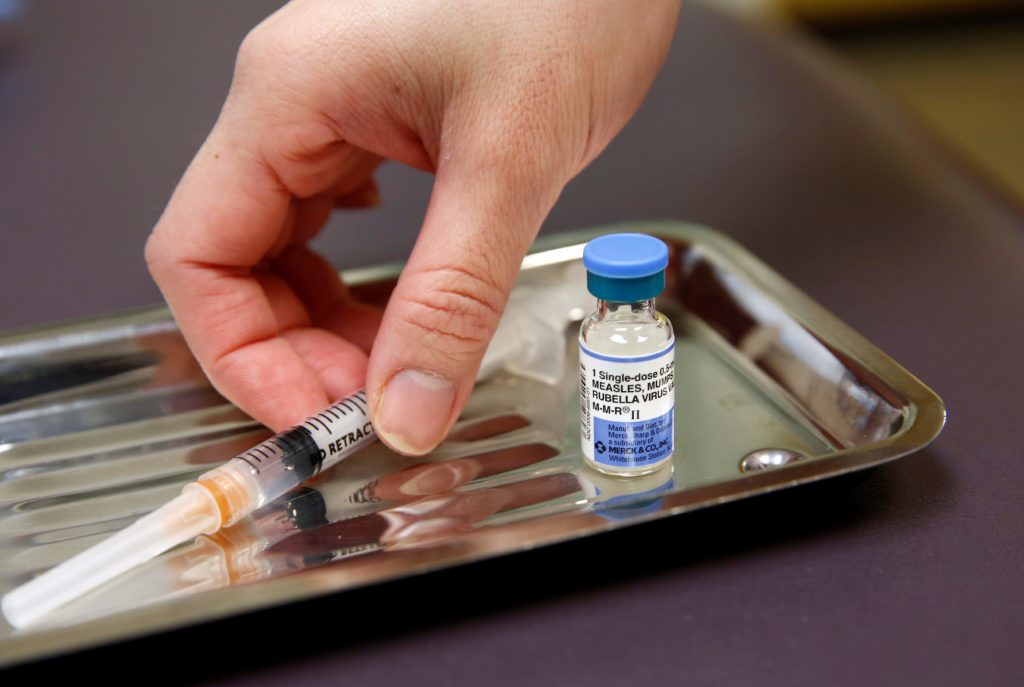Amid measles outbreak and emergency mandates, Vatican makes position change public
For vaccination advocates, there’s bad news and good news. Let’s start with the bad.
Although deemed eradicated in 2000, measles is making a record comeback in the United States.
Health officials have, for the second week in a row, added dozens of new cases, bringing the nationwide total to 465 as of last week. Not only does this mark the highest number of cases in a five-year period, highly contagious measles is now present in a third of U.S. states, including Iowa neighbors Illinois and Missouri. More measles cases occurred in the first three months of 2019 than in all of 2018, according to the Centers for Disease Control and Prevention.
Although 2014 remains the year since 2000 with the most annual cases on record, which was 667, the exposure rate in 2014 was 1.83 cases per day. Currently, the exposure rate is 4.84 cases per day. At that pace, measles cases will surpass 2014 figures by June.
Measles is easily transmitted: You can catch it by sharing space with an infected person — up to two hours after that person has left the area. An infected person can pass along the disease for days before he or she exhibits symptoms. Uber vehicles, schools, restaurants, a grocery store and taxicabs have been highlighted by New York state officials as possible contamination sites during recent outbreaks.

Health officials, who have been sounding warning bells for years about lax vaccination requirements, are speaking now with a clear voice: Outbreaks are easily traced to pockets of unvaccinated people, especially children left unprotected by parents’ misguided fears.
The situation has brought new scrutiny to those who chose to delay or completely forego vaccinations, and rightly so. When it comes to dangerous and contagious disease, we all must work together.
A similar sentiment was at work when the Northern Kentucky Independent District Board of Health banned 32 students without chickenpox immunity from attending school and extracurricular activities during an ongoing outbreak. One of the those students, Jerome Kunkel, an 18-year-old senior at parochial Assumption Academy, sued, citing religious conviction. Specifically, Kunkel said he opposed vaccines developed through use of fetal cells. A judge recently rejected Kunkel’s claims.
That, however, isn’t the only piece of good news. The Pontifical Academy for Life, a group appointed by the pope, released an updated Catholic position unequivocally in favor of all vaccinations. Although written two years ago, the position was only recently made public, an apparent acknowledgment of the heightening health problems created by the unvaccinated.
The group had previously warned Catholics of a “moral duty to continue to fight and to employ every lawful means in order to make life difficult for the pharmaceutical industries” offering vaccines that could be traced to lines derived from aborted fetal cells. The new position states “the use of such vaccines does not signify some sort of cooperation in voluntary abortion” and that parents have a “moral obligation to guarantee the vaccination coverage necessary for the safety of others.”
This is not just good news for Catholics, but good news for us all. And, other religious groups must now do the same by beginning to push local faith leaders to acknowledge the moral imperative of public health.
This column by Lynda Waddington originally published in The Gazette on April 10, 2019. Photo credit: Lindsey Wasson/Reuters and Shannon Stapleton/Reuters
